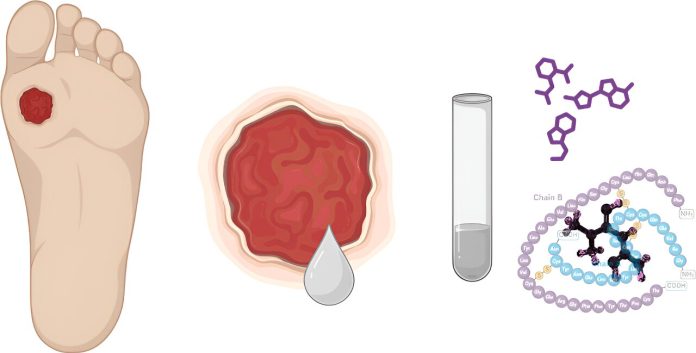
People suffering from chronic diabetic foot ulcers (DFUs) may soon have a new treatment option to help heal their wounds faster.
A recent study by researchers from Michigan State University and South Shore Hospital has found that combining two common diabetes drugs—insulin and metformin—can speed up the healing process.
This is promising news for the 18.6 million people worldwide, including 1.6 million in the U.S., who are affected by DFUs.
In this study, researchers discovered that when patients take both injectable insulin and oral metformin, more metformin accumulates at the wound site.
Metformin has already been shown to help wounds heal faster, so this combination could lead to fewer hospital stays and improved recovery times for people with DFUs.
Dr. Morteza Mahmoudi, an associate professor at Michigan State University, and Dr. Lisa Gould, a plastic surgeon and wound care specialist at South Shore Hospital, led the research.
They found something unexpected while studying the fluid, or exudates, collected from diabetic foot wounds. “We noticed metformin in the wound fluid, which has never been observed before,” said Dr. Mahmoudi.
Until now, medical studies had not found a direct link between insulin and metformin in wound healing.
However, this study suggests that taking both drugs may help metformin reach the wound area, boosting the body’s ability to heal.
“This discovery could change how doctors treat chronic wounds,” Dr. Mahmoudi explained. “For patients with foot ulcers, the combination of insulin and metformin could be very useful.”
Dr. Mahmoudi also highlighted that the findings are important for the development of wound dressings. The fluids from wounds can interact with dressings and affect how well they work. “It’s essential to consider these interactions to ensure the dressings are safe and effective,” he said.
This research could lead to better treatments for people with diabetic foot ulcers, helping them heal faster and avoid complications.
If you care about diabetes, please read studies about the cooking connection between potatoes and diabetes, and low calorie diets may help reverse type 2 diabetes.
For more health information, please see recent studies about protein power: a new ally in diabetes management, and pineapple and diabetes: A sweet surprise.



